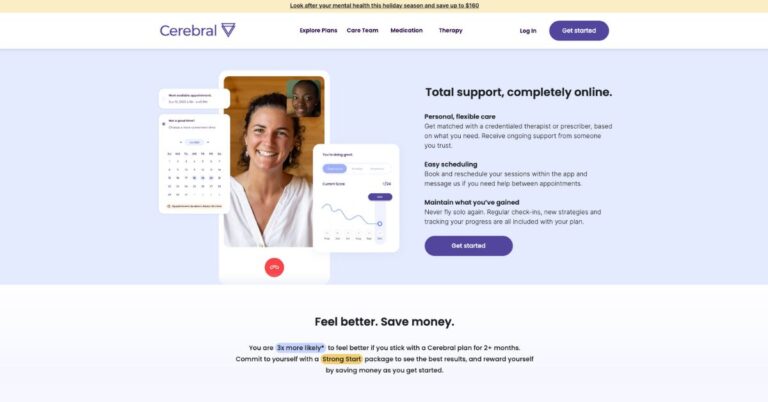Have you heard the saying, “Study smarter, not harder”? It’s popular because it’s true! Learning how to study effectively for exams can help you avoid late-night cramming and test anxiety. It can ease stress, save you time, and help you get a better grade.
Even better, students who know how to study effectively for exams also take away more from their courses.
We know how important it is to maintain a good GPA, especially if you’re relying on scholarships to pay for your education. That’s why we’ve put together this guide to help you learn how to study effectively for exams, no matter your major.
Why You Should Learn to Study for Exams
You may wonder how to study effectively for exams and spend a lot of time searching for the perfect formula online. In reality, it’s not so straightforward. There are some great principles to studying effectively, and we’ll cover them in this post, but it’s important for each student to develop the right strategies for their unique learning style.
When you learn how to study based on how your brain learns best, life becomes easier, and you become a more successful student.
School stress keeps 68% of college students up at night, but you don’t have to be one of them. By adopting some helpful strategies—from memory tips to supercharging your health— you can confidently learn, study, and pass exams.
How to Study Effectively for Exams: 6 Can’t-Miss Tips
Now, we’re ready to dive into the top tips to help you learn how to study for college exams. These strategies and all-natural solutions can be modified to suit your needs, courses, and lifestyle. At the end of the day, our goal is to help you pick up good study habits that you can count on throughout your degree.
1. Create an Exam Study Guide
Every test you take should have its own study guide to help you prepare. A lot of students make the mistake of covering everything at once, then panic when test day comes. You can help your future self now by writing down the core class material that will be covered on every upcoming test.
If you aren’t sure, ask your professor. They’re there to help. Let’s say you have a biology exam at the end of the week. If it’s a unit test, then you can open your textbook, and read the sections within that unit. These are the main points you should cover. Digging deeper, you can address specific points within each subsection that you need to work on.
Your exam study guides don’t have to be pages long or take hours to write. A simple list format of keywords can be enough to help you guide your study sessions.
2. Study with Classmates
Joining or forming a study group is a great way to stay social while learning with others. Chances are, each student in the group has their own strengths, which they can use to help others further their own education.
Make sure that everyone who joins is organized, prepared, and dedicated to focusing on the class material. You can even send out a group text or email ahead of the meeting to plan your study topics for the day.
3. Create a Good Study Space
Whether it’s your favorite table at the library, under a tree in the courtyard, or just in your dorm room, find an environment that makes you happy to be learning. If your room has too many distractions, consider heading out. You might find it easier to study in public at the library or at a coffee shop.
Noise-canceling headphones can also be a major help in creating a good study space. They can block out any background noise and help you stay focused. Consider listening to some ambient videos on YouTube or instrumental music that boosts your concentration.
You should also have:
- Plenty of water to stay hydrated
- A timer on a study video or your phone to remind you when to take breaks
- All the supplies you need—pens, highlighters, notebooks for each subject, etc.
4. Study for Short Periods of Time Throughout the Week
The idea that you have to cram for hours to get a good grade is a myth. It’s actually more effective to study through short study sessions throughout the week. The reason for this is that reviewing the same material periodically gives you retrieval practice. Retrieval is crucial to recalling information at will, like when you’re taking a test.
If you want to get better grades and actually remember what you’re studying, retrieval practice is far more effective than once-a-week cram sessions.
You may also find it helpful to take practice tests. Your professor may not provide any, but that’s okay. By reviewing the class material that will be on the test, you can write your own questions. Once you’re comfortable with the answers, try to expand upon them so you really feel like you’ve mastered the topics.
5. Sleep Well
It turns out that self-care plays a major role in how to study effectively for exams. Current research shows that lack of sleep or poor sleep quality negatively impacts cognitive function. As a college student, this means you’ll have a harder time recalling important information and passing exams if you don’t get enough rest.
To properly care for yourself, it’s important to not only fall asleep at a regular time, but have a restful, restorative sleep for at least 7 hours every night.
6. Eat Healthy
A good diet fuels your brain power! A lack of fruits and vegetables is one of the biggest threats to college students’ diets. One way to fix that is by swapping out junk food for healthy alternatives. Instead of potato chips, try some crunchy carrot sticks or cucumber slices with hummus. Make sure you’re eating enough protein and staying hydrated in order to maintain energy levels.
Another fast and easy way to get the vitamins your brain needs is by trying a nutritional supplement like Live it Up Super Greens. They pack your daily dose of superfoods, probiotics, and essential nutrients into one delicious drink.
Final Thoughts
These tips can help any student learn how to study effectively for exams. It all comes down to planning your studies, breaking up your material into manageable parts, pacing yourself, and taking care of your brain and body.
Like any skill, good study habits take time to form. But once you have them, they’ll benefit you throughout your entire college program—and even beyond!
Our Editorial Team, with a rich background in educational content creation, prioritizes accuracy and quality in every article. We are committed to producing expert content tailored to meet the academic needs of college and high school students, ensuring they receive well-researched and trustworthy information for their educational journey.







